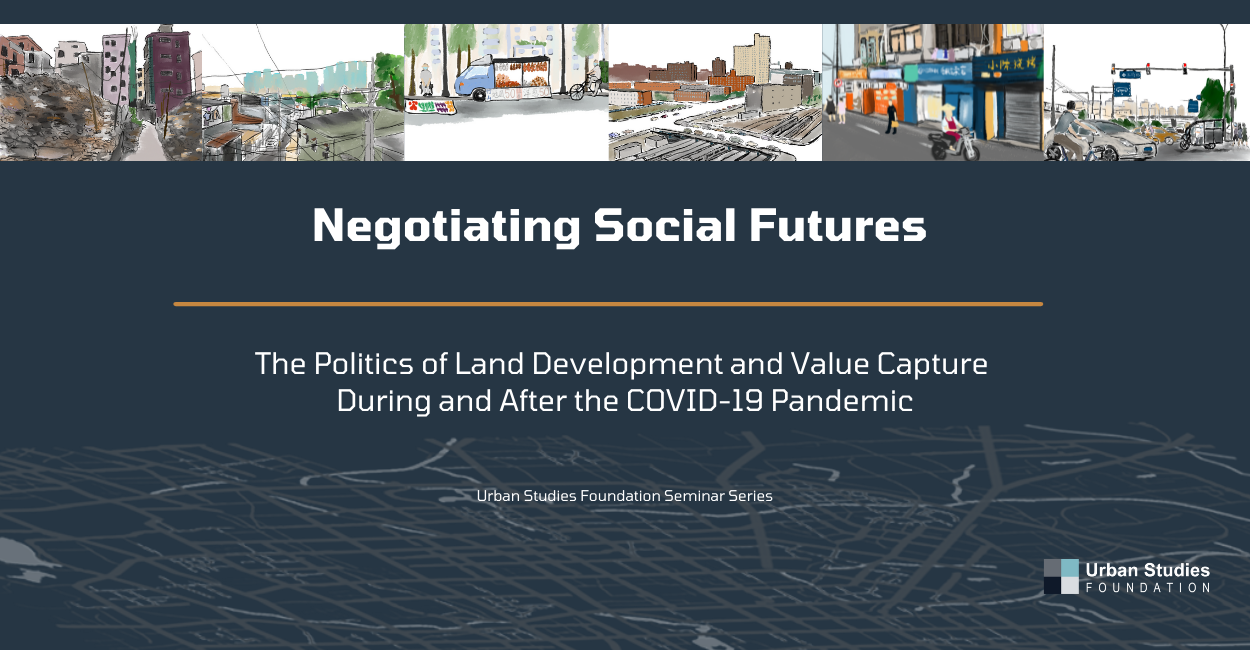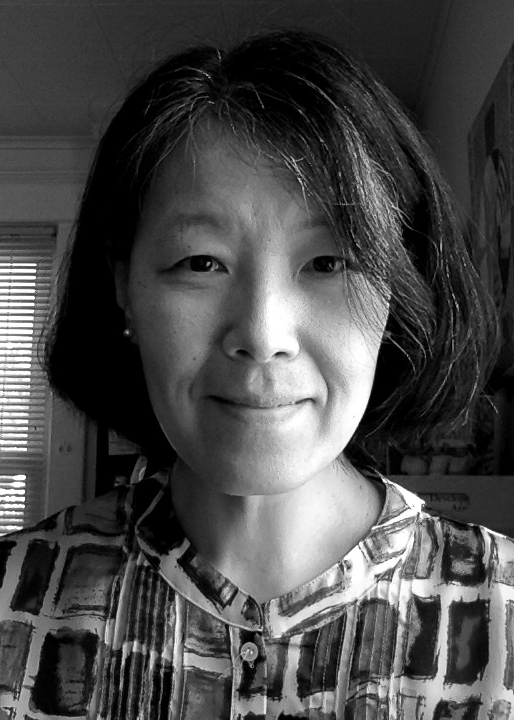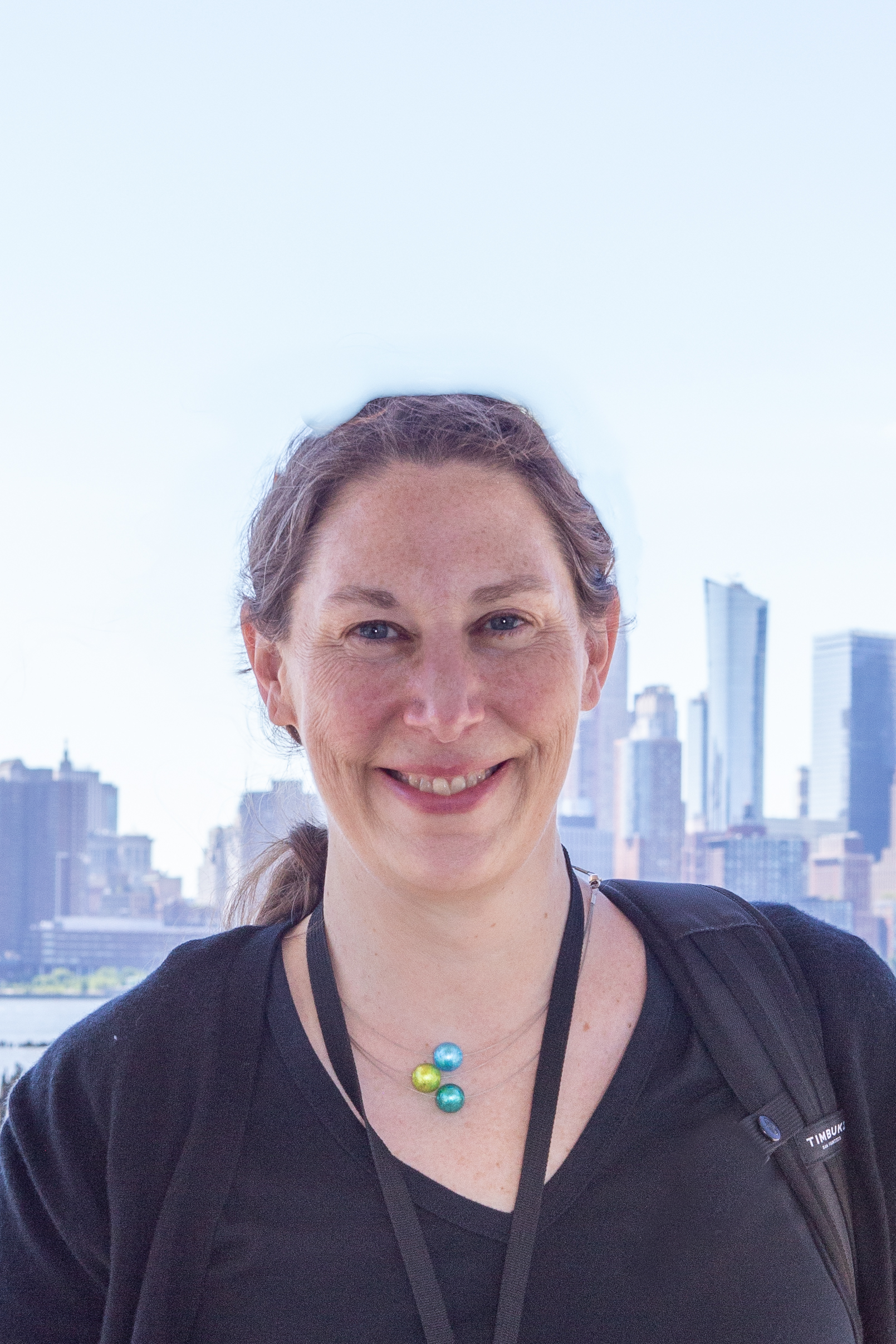
About
As land is now conceptualized as a reservoir of value to be extracted, there arise a set of questions about what it means for the city’s social future when public policy objectives are addressed through negotiated land deals and capture techniques. This conference series engages the urban studies community in dialogue about substantive issues of conceptualization and empirical cases regarding the value of land in our social futures during and after COVID-19. By social future, we mean the possible kind of world that society collectively imagines and produces through engagement in practice (Dewey, 2012 [1927]). The COVID-19 pandemic has exposed many forms of structural inequality laying bare the need for more thoughtful social policy making approaches.
The seminar series is organized around three events – a virtual paper conference in September 2021, a virtual mini-workshop on case study methodologies in January 2022, and an in-person case study conference in September 2022.
The series is organized around three main questions:
First, how does value capture work? Does COVID-19 re-embed value in land development with social futures? Value capture is practiced locally idiosyncratically. By juxtaposing a set of dissimilar cases as a method of comparison (Caldeira, 2017), we plan to unravel how capture techniques are assembled and then mobilized globally as “methodological essence” to fix urban problems (Peck and Theodore, 2001) and the variegated process of implementation and outcomes. We will also examine whether, and, if so, how, COVID-19 disrupts or restructures present land development discourses and practices. COVID-19 exposes marginalization and inequality in poor housing conditions for migrants and low-income neighborhoods, private design of public space, and anti-poor and profit-driven treatments of informal settlements. This raises questions about how to capture value differently such that it is re-embeded with the social. How does on-going social resistance to commodification and value capture, such as squatting and occupy movements, community land trust, etc., join forces with new reckonings around social inequalities in land?
Second, how should the politics of land development and the city’s social futures be aligned? Some have argued that land speculation is predicated on value capture techniques, which further intertwine public benefits with financial logics (Chen, 2020; Safransky, 2020; Weber and O’Neill-Kohl, 2013). Others, however, have seen value capture as a state-led appropriation of a land rent gap where better developments are possible (Fainstein, 2012; Haila, 2015; Robinson and Attuyer, 2020; Todes and Robinson, 2020). These two divergent bodies of work suggest that the outcomes of value capture are never predetermined and instead are molded through the public-private dynamics. The proposed conference and workshop will foreground practices of value capture as a means toward possible social futures in the politics of land development.
Third, where is the place of the public in defining, negotiating, and anchoring captured value? Value capture techniques assume that gains and losses are additive and commensurable and only capture those that are material and measurable. The technocratic-oriented regime feeds well into the developmentalist, top-down urban entrepreneurialism, a prevalent mode of urban transformation especially in the Global South. It also often obscures global capitalism, power concentration, market rationality, and individualistic legality that are at the center of urban land commodification. In addition, whatever benefits that are available and open to public negotiation are only those compatible with the capitalist land market and development deals. The monetization of value therefore can easily foreclose non-monetary or social constructions of value by communities, leading to private appropriation of publicly produced value. It is therefore crucial to ask who decides, through what process, for whose value, at whose cost, and to what end. Workshop participants will examine the conditions under which the public thrives or stagnates in value capture.
This project is supported by an Urban Studies Foundation Seminar Series Award grant (USF-SSA-210213) and hosted by Dr. Mi Shih and Dr. Kathe Newman.

Mi Shih
Mi Shih is an associate professor in the Urban Planning and Policy Development Program at the Edward J. Bloustein School of Planning and Public Policy, Rutgers University. Her research includes two major areas. Using mixed methods, the first area explores informal housing, the politics of land value creation and capture, and the relationship between the role of the developmental state and democratic planning in Taiwan. The second area uses ethnographic methods to understand displacement, peri-urban transformation, social and political governance of land conflicts in Shanghai and Guangzhou, China. Mi has published articles in Urban Studies, International Journal of Urban and Regional Research, Planning Theory & Practice, Urban Geography, Journal of Planning Education and Research, Planning Practice & Research, Environment and Planning A. She is currently working on several case studies that explore the intersection between technocratic planning, land politics, and democratic participation in state-led urban development.

Kathe Newman
Kathe Newman is a Professor in the Urban Planning and Policy Development Program at the Edward J. Bloustein School of Planning and Public Policy and Director of the Ralph W. Voorhees Center for Civic Engagement. She holds a Ph.D. in Political Science from the Graduate School and University Center at the City University of New York. Her research explores urban change, what it is, why it happens, and what it means. Her work has explored gentrification, foreclosure, urban redevelopment, food security, community economic development and community participation. Kathe has published articles in Urban Studies, International Journal of Urban and Regional Research, Urban Affairs Review, Shelterforce, Progress in Human Geography, Housing Studies, GeoJournal, and Environment and Planning A. She is currently an editor of Environment and Planning A.